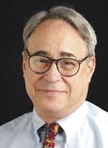
By Carl P. Leubsdorf
In years past, Labor Day marked the start of the general election campaign. But studies show voters tend to make up their minds earlier, prompting political analysts to consider whether underlying factors mean the 2016 race is already as good as over.
Veteran analyst Stu Rothenberg says it is. “Given the current numbers, the major question is the size of Hillary Clinton’s electoral vote victory,” Rothenberg wrote last week in The Washington Post.
Longtime Democratic pollster Peter Hart is more cautious. Discussing a recent bipartisan focus group in the Milwaukee suburbs that showed substantial disdain for both Donald Trump and Hillary Clinton, Hart cautioned against “premature” forecasts of a substantial Clinton victory.
He said the 2016 election reminded him of 1980, when voters knew they didn’t like President Jimmy Carter but needed to be reassured that Ronald Reagan would be a safe choice, something that occurred in their only debate.
“This year,” Hart wrote in a commentary for The Wall Street Journal, “a lot of voters know they do not want Donald Trump as president, but they need to know that they can ‘live with’ Hillary Clinton for the next four years.”
Recent polls support Hart’s caution. They show Clinton’s lead has eroded considerably from her post-Democratic convention highs. But she still leads Trump nationally by more than 3 points in the Real Clear Politics average and in almost every highly contested swing state.
These surveys also show that, for the most part, Trump still faces the same problems as earlier: his failure to consolidate many normally Republican voters, especially better educated white suburbanites, and his minimal support among minorities.
On the other hand, voter disapproval of Clinton is now nearly as high as for Trump, and a larger-than-usual proportion of voters are undecided or supporting Libertarian candidate Gary Johnson and the Green Party’sJill Stein. Support for the latter two has only increased marginally, suggesting voters understand either Clinton or Trump will be the next president.
“Taken together,” National Journal analyst Charlie Cook wrote, “these data suggest that while the election is not over, it would take a pretty major event or turn of events for Clinton to lose, which can obviously happen but probably will not. “
History suggests the most likely place is their first nationally televised debate, scheduled for Sept. 26 at Long Island’sHofstra University.
Meanwhile, since their conventions, the two candidates have done more to underscore their weaknesses than to stress their strengths.
After a difficult two weeks exemplified by his verbal joust with a military Gold Star couple, Trump again reorganized his campaign, bringing in several hard line conservatives including an experienced GOP pollster. But he also continued making contradictory statements on curbing illegal immigration.
Campaign officials were reportedly pleased with his meeting with Mexico’s president and ensuing reiteration of his immigration policy. But the latter’s harsh rhetoric drove away some of his high-level Hispanic advisers and did little to clarify how he would handle millions of undocumented aliens.
Clinton, meanwhile, suffered from spending the better part of two weeks doing minimal campaigning while bolstering her already massive financial war chest. Her campaign hopes its ability to outspend Trump on the ground and in the air will be a crucial advantage, something not yet evident.
But her speeches presenting proposals to treat mental health and further defining her foreign policy were overshadowed by continuing disclosures stemming from her private email system, including some questionable testimony to the FBI and the revelation that, deliberately or not, she failed to provide probes with all her work-related emails.
Both Clinton and Trump are pursuing busier schedules this week, but their principal focus increasingly will be the debates. For Clinton, they offer an opportunity to press her advantage as the candidate voters consider the most qualified and most experienced to be president.
They loom even larger for Trump, since that’s where underdog candidates have often achieved rough equality with favorites. In most recent elections, the less experienced candidate gained a tactical advantage by beating pre-debate expectations in their first encounter.
George W. Bush and Barack Obama sustained their breakthroughs. But challengers John Kerry and Mitt Romney failed to overcome their rivals’ initial advantage.
As to whether the race is essentially over, the noted political analyst Yogi Berra said it best: “It ain’t over till it’s over.” There are about 60 days until Election Day and, for Hillary Clinton and Donald Trump, that will seem like a lifetime.
ABOUT THE WRITER
———
(c)2016 The Dallas Morning News
Visit The Dallas Morning News at www.dallasnews.com
Distributed by Tribune Content Agency, LLC.
KeyWords:: BC-LEUBSDORF-HOTTOPIC:DA BC LEUBSDORF HOTTOPIC DA


